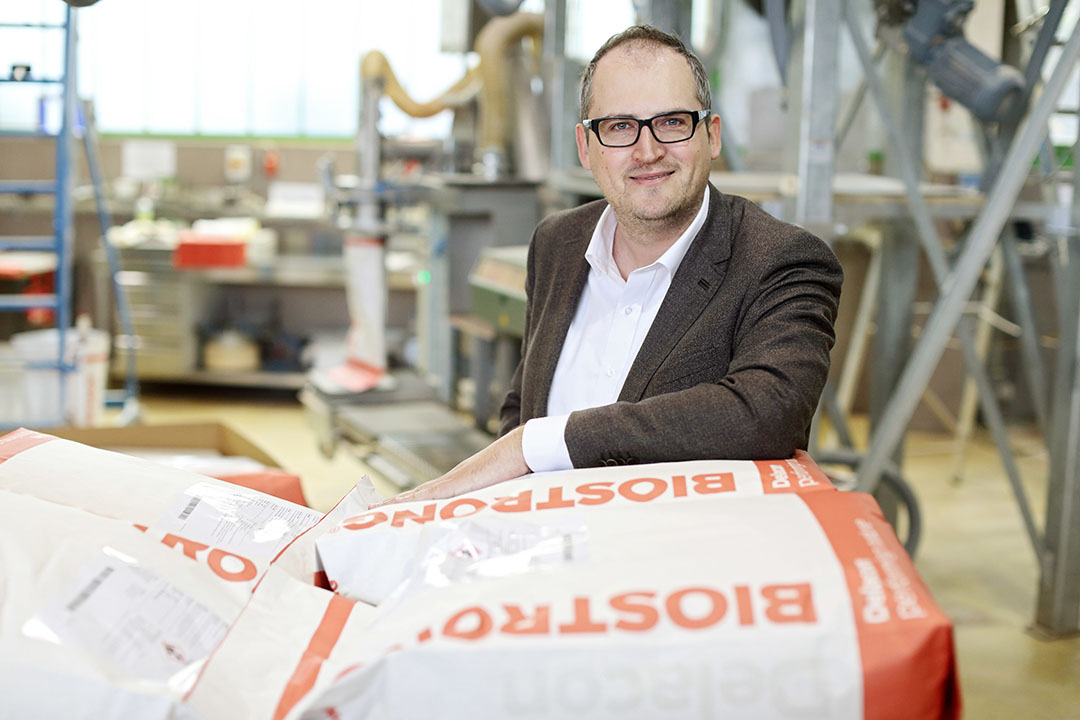Markus Dedl: “Phytogenics offer us a powerful story”

Two years after the first groundbreaking study on product perception and consumer habits of millennials, phytogenic feed additive producer Delacon delved deeper dive this important target audience.
Delacon’s CEO Markus Dedl: “The new study could lead to radical changes in how our industry promotes its end products.” The poultry industry faces pretty steep demands from today’s consumers when it comes to animal welfare, production without the use of antibiotics and transparency of production. And every food company follows its own strategy in how to bring their best practices to the attention of the consumer. Many tailor their approach following demand, but only few really want to understand what drives the consumers in the first place. “That is what we wanted to find out two years ago. Consumers have the power to change every aspect of the animal livestock industry. Their concerns, their acceptance of production methods, should be critical in how our customers and we ourselves organise our businesses,” says Delacon’s CEO Markus Dedl.
The first research showed that millennials, key influencers in the field of meat consumption, are really susceptible when it comes to animal wellness, good management practices and natural plant-based feed ingredients. “What works best in the way we promote and label our products was the next big question we wanted to answer.” Mr Dedl continues: “Our objective in the latest research was to learn more about which messages appeal to the millennial consumer and how phytogenic feed additives can create value and differentiate a product at retail level.”
Wrong tone of voice
The latest survey was conducted online in the United States by Millennium Research on behalf of Delacon in October 2018 among 517 millennial adults ages 26-36. To avoid survey bias, all label testing was conducted prior to exposing the definition: “Phytogenic feed additives are natural ingredients, many as common as those found on a kitchen spice rack, fed to chickens, pigs and other animals. Not only do these ingredients offer proven safety to animals and people, but they also naturally promote animal wellness and environmental sustainability.”
One of the most surprising outcomes is that current labelling practices have the wrong tone of voice. Mr Dedl: “Despite the barrage of marketing claims found in most grocery aisles – cage-free, gluten free, no added hormones – consumers are as confused as ever. One in 5 millennials (20%) are so conflicted about food information they don’t know what to believe.” Meanwhile, industry professionals warn that “free from” labels have been misused as a fearmongering tactic that erodes consumer trust in the entire food business. Mr Dedl on the subject: “If you state on a label that your poultry meat is produced without the use of antibiotics, at the same time you imply that other poultry meat is produced with antibiotics. In that way you dig a ditch for the rest and it will reflect on you as well as being part of the poultry industry.”
Move to positive claims
According to Mr Dedl, the way forward is to move to positive claims instead of negative claims. “It’s time to give the bird undifferentiating, absence-claim labels.” Mr Dedl is challenging the industry to make a radical change: “Empower consumers with information that describes specifically what is present in the chicken’s environment or diet. Our research now and 2 years ago learned that millennials really ‘dig’ the concept of plant based feed ingredients and that poultry produced with phytogenics would make a positive impact on their brand choice. The category of phytogenics is one of the few fields in our industry where we have the chance to open up and talk in a positive manner about our products. Phytogenics offer us a powerful story.”
Extra value per pound
As Delacon itself doesn’t have a direct connection with the consumer of animal protein products, it wants to challenge it’s customers to make changes. “This research, our knowledge, that is what we bring to the table in discussions with our clients.” To guide meat and poultry producers, Delacon shares three findings that point to an opportunity for added value when sharing messages with millennials. First of all, nearly half of millennials (43%) say that knowing their meat or poultry was fed phytogenic ingredients would make a very positive impact on their brand choice and brand loyalty. Secondly, an environmentally friendly message creates believability and intent to purchase. Mr Dedl: “The top performing label message tested in the study was ‘fed phytogenic ingredients to be environmentally friendly’. And, more importantly, the consumer is willing to spend on that claim. Among phytogenic fans, this label was assigned a positive value of US$ 0.64 per pound and 84% said they would consider purchasing it over the poultry brand they regularly buy.” Last, but not least, using specific words within messaging such as ‘environmentally’, ‘essential oils’ or ‘herbs’ can contribute to product differentiation and a memorable brand. “Conscientious consumers are keen on making choices that contribute to shaping the future of food,” notes Mr Dedl. “Phytogenics are in line with the social interest in consumption of food as a form of self-expression and even a personal responsibility. Empower consumers by giving them the right and attractive information, this will make a big difference in purchasing behaviour.”











